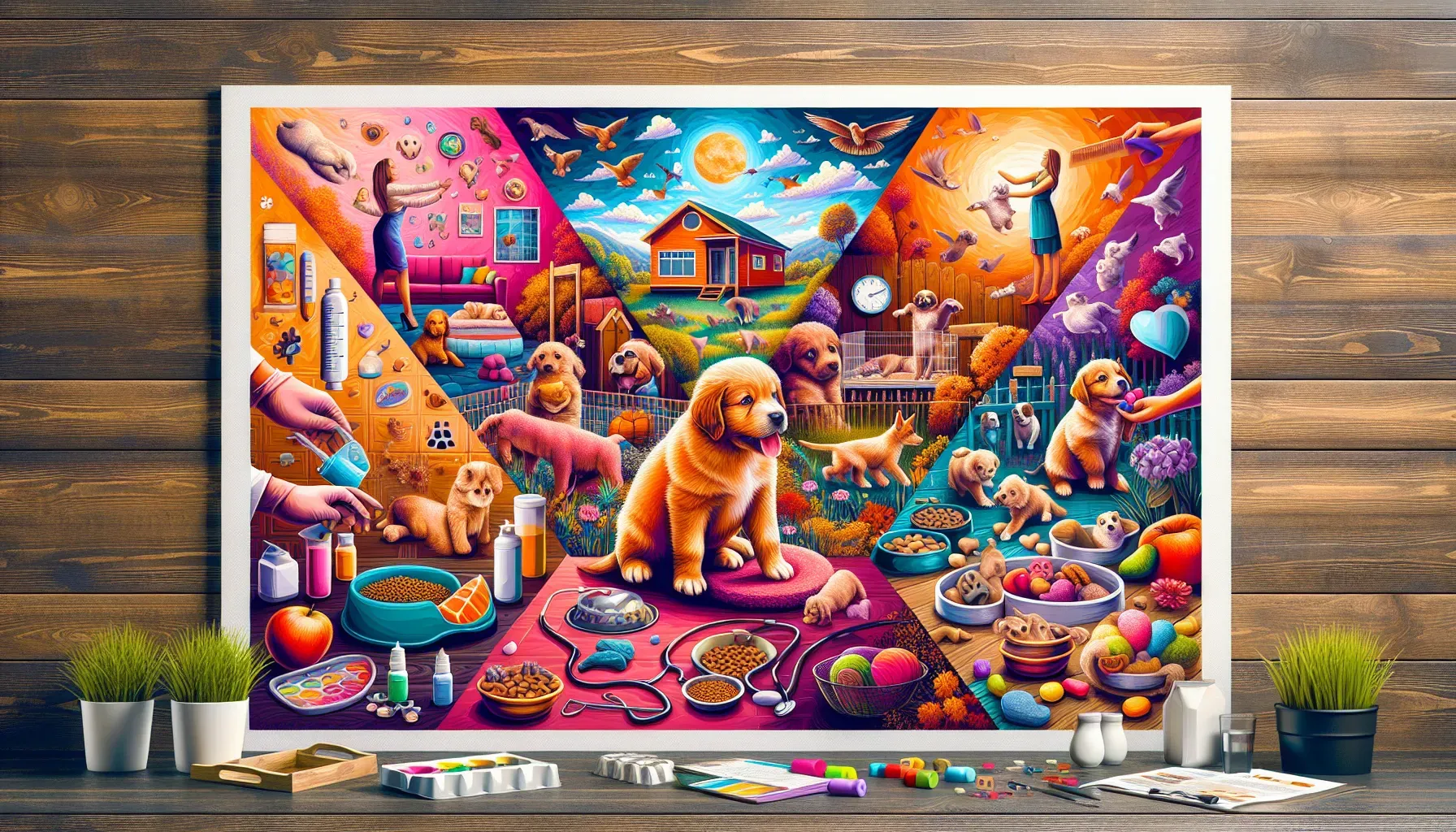
Bringing a puppy home is akin to bringing a new family member into your life. Puppies are full of boundless energy, curiosity, and an innate need for affection. Understanding their behavior, needs, and developmental stages is crucial in providing the best care possible. From teething and chewing habits to body language and communication cues, getting acquainted with your puppy’s world is the first step in building a strong, loving bond.
Understanding Your New Puppy
Puppies' developmental stages play a critical role in how they interact with their environment. During their first few months, they learn about the world predominantly through their senses and experiences. Socialization should begin early, introducing them gently to a variety of sights, sounds, people, and other animals.
Chewing is a natural part of puppies’ growth. It helps them alleviate the discomfort of teething while exploring their surroundings. Providing appropriate chew toys can save your furniture and shoes from damage.
Understanding canine body language helps in responding effectively to your puppy's needs. Recognizing signs of fear, excitement, or stress enables you to adjust their environment or behavior to better suit them.
Key Developmental Stages of Puppies
Creating a safe and welcoming environment for your puppy is paramount. Puppy-proofing your living space entails eliminating potential hazards such as toxic plants, small objects, and electrical cords. Providing designated areas for rest, play, and potty training contributes to a smooth transition for both you and your new fur baby.
Remove or secure loose wires or curtains that might pose strangulation hazards.
Related Article: Budget-Friendly Pet Care Hacks for Every Fur Parent
The Importance of Chewing for Puppies
Ensure all houseplants are non-toxic; many common household plants can be dangerous if ingested.
Designate a puppy-proof zone where your pup can safely explore and play without constant supervision.
Reading Canine Body Language
Proper nutrition is the cornerstone of your puppy’s growth and development. Tailoring their diet to suit their breed, size, and age ensures they receive the necessary nutrients for optimal health. Additionally, establishing a consistent feeding schedule and ensuring access to clean water is vital. When it comes to shelter, cozy bedding in a secure area offers a sense of security and comfort for your growing pup.
Consult with a vet to choose the best diet that supports your puppy's specific breed requirements.
Related Article: Busy Bee? 5-Minute Pet Care Routines for On-The-Go Owners
Preparing Your Home for a New Puppy
Consider setting up multiple water stations around your home to encourage hydration.
Puppy-Proofing Your Living Space
Socialization plays a pivotal role in shaping your puppy’s temperament and behavior. Introducing them to various experiences, environments, and other pets in a positive manner fosters confidence and adaptability. Whether it’s puppy playdates or exposure to different sounds and stimuli, socialization sets the stage for a well-adjusted and sociable adult dog.
A well-socialized puppy is less likely to develop behavioral issues later in life.
Related Article: Family Fun: Incorporating Pet Care into Kids Activities
The Essentials: Food, Water, and Shelter
Regular health check-ups are integral in safeguarding your puppy's well-being. Keeping track of vaccinations, deworming schedules, and addressing any concerns with a veterinarian ensures that your puppy grows up healthy and resilient. Additionally, grooming practices such as nail trimming, ear cleaning, and dental care contribute to maintaining their overall hygiene.
Create a health record book where you can keep track of vaccinations dates, deworming schedules, and vet visits.
Choosing the Right Nutrition for Your Puppy
Training your puppy involves patience, consistency, and positive reinforcement. Basic commands like sit, stay, and come form the building blocks of their obedience training. Employing rewards such as treats or praise encourages desirable behavior while strengthening the bond between you and your pup.
Socialization Tips for a Happy Puppy
Positive reinforcement promotes learning by reward rather than punishment.
Basic Health and Wellness Checks for Your Puppy
Establishing a predictable routine fosters a sense of security and stability for your puppy. Consistent mealtimes, regular exercise sessions, and designated rest periods form the framework of a balanced lifestyle for your furry companion. A harmonious routine also aids in toilet training and behavioral predictability.
Frequently Asked Questions
Understanding your puppy's behavior is essential for building a strong bond. Puppies are curious and energetic, and they communicate through body language and vocalizations. Recognizing signs of fear, excitement, or stress can help you respond appropriately to their needs, ensuring a loving and supportive environment as they grow.
Puppy-proofing your home is crucial for your new pet's safety. Remove hazardous items like toxic plants, electrical cords, and small objects that could be swallowed. Designate safe areas for play and rest, ensuring your puppy has a secure space to explore without constant supervision while adjusting to their new environment.
Providing proper nutrition is vital for your puppy's growth. Tailor their diet according to breed, size, and age while maintaining a consistent feeding schedule. Additionally, ensure they have access to clean water and a cozy bed in a secure area, which will help them feel safe and comfortable in their new home.






